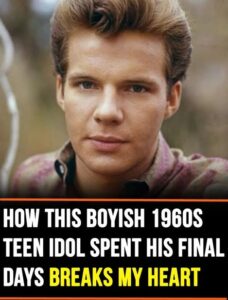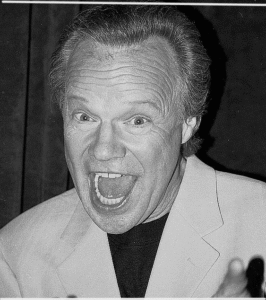Remembering Bobby Vee: The Teen Idol Who Rose from Tragedy to Stardom

For millions of music lovers, February 3, 1959, is remembered as “the day the music died.” Buddy Holly, Ritchie Valens, and J.P. “The Big Bopper” Richardson lost their lives in a plane crash that shook the foundation of rock & roll. But for a 15-year-old boy from Fargo, North Dakota, that day marked the unexpected beginning of a remarkable career.
That boy was Robert Thomas Velline, later known to the world as Bobby Vee—the fresh-faced teen idol who would soon become one of the defining voices of the early 1960s.
The Tragic Tour That Changed Everything
Buddy Holly, Valens, and The Big Bopper had been traveling through the freezing Midwest on what was grimly nicknamed the “Tour from Hell.” The buses were unheated, performers were falling ill, and frostbite was common. Desperate for relief, Holly chartered a plane to carry him and two other stars to the next stop in Moorhead, Minnesota—a short distance from Fargo, Bobby Vee’s hometown.
The crash devastated the music world. Yet, the show went on. With headliners suddenly gone, concert promoters scrambled to keep the Winter Dance Party alive. Local radio stations pleaded for new acts to step forward.
A Teenager Answers the Call
Among those who heard the broadcast was Bobby Vee, who idolized Buddy Holly. Though he had never performed in front of an audience, Vee and his small band—his brother Bill, along with friends Dick Dunkirk and Bob Korum—volunteered. They had just a few hours to prepare and only six songs in their repertoire.
“When we heard the call, we went in and volunteered,” Vee later recalled. “We hadn’t even picked a band name, so we called ourselves The Shadows right there on the spot.”
That night, standing in for fallen legends, the 15-year-old delivered a performance that would change his life forever.

An Unlikely Bandmate: Bob Dylan
The Shadows’ journey didn’t end there. For a time, their pianist was a young musician named Elston Gunnn—better known today as Bob Dylan.
“He could only really play in the key of C,” Vee once laughed, remembering Dylan’s short-lived role in the band. “But he sure had the spirit.”
Dylan soon went his own way, reshaping American folk music. Bobby Vee, meanwhile, pursued a pop career that soared.
From Teen Idol to Chart Topper
Between 1959 and 1970, Vee scored 38 hits on the Billboard Top 100. His biggest smash came in 1961 with “Take Good Care of My Baby”—written by Carole King and Gerry Goffin—which climbed all the way to No. 1. Other favorites included “Run to Him,” “Rubber Ball,” “The Night Has a Thousand Eyes,” and “Come Back When You Grow Up.”
Audiences fell in love with his boyish charm, smooth vocals, and polished stage presence. He became a household name, his songs soundtracking the innocence and optimism of the early ’60s.
A Life Devoted to Music
Even as the decades rolled on, Vee never abandoned his love of music. He toured with his sons Robby, Tommy, and Jeff under the name The Vees, creating a family legacy that stretched across generations.
But in 2011, he was diagnosed with Alzheimer’s disease. Instead of retreating in sorrow, he faced the illness with courage and humility.
“It’s not getting any better, I can tell you that,” he told the Associated Press. “But I’m doing the best I can.”
Remarkably, in 2014, he released The Adobe Sessions, a heartfelt collection recorded with his family. It included songs by some of his own musical heroes, from Gordon Lightfoot to Ricky Nelson. The album was released on the 55th anniversary of the Buddy Holly crash—the very event that launched his career.
His Final Words on Life and Music
Looking back on his journey, Bobby Vee accepted both the blessings and hardships with grace.
“I’m not going to cry about it,” he said near the end of his life. “God brought me home. And that’s the deal.”
His story is one of resilience, timing, and the enduring power of music. What began as a tragedy became the spark that lit the career of a boy with a guitar—and a voice that carried through generations.
✨ Bobby Vee may have only had one official No. 1 hit, but to his fans, nearly every song he sang was unforgettable.